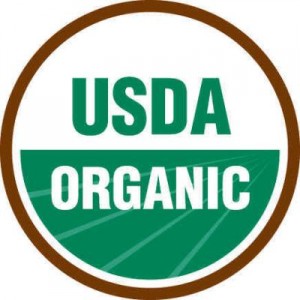Living the Natural Way
Of course, completely avoid all manmade products would be virtually impossible if you participate in modern society, so I’m not trying to suggest that we live in a house devoid of plastics and chemicals. We have phones and computers, we drive cars and we buy foods that are often packaged in plastic. But given the choice between a shampoo with a list of 10 ingredients that all have funny sounding names that I can’t pronounce and one with a handful of ingredients that I recognize, I’m going to choose the latter.
Another important thing to note is that not everything that is manmade is inherently bad, just like not everything in nature is inherently good for you. Obviously, there are many products made from plastics and other manmade materials that serve a valuable purpose (my computer and phone come immediately to mind). There are other products where it simply wouldn’t make sense to have them made out of natural products even if they existed (can you imagine a a bicycle helmet made out of wood or, heaven forbid, glass? Yikes!). There are also some natural products that we try to avoid. Lavender and tea tree oils come immediately to mind because of a 2007 study published in the New England Journal of Medicine that suggested they can lead to breast growth in boys. That’s just one study, so it’s far from definitive, but I really don’t want my son to end up with breasts, so we avoid these ingredients whenever practical.
No discussion of natural living would be complete without mentioning the word organic. If something is produced organically, that means it was produced without the use of synthetic fertilizers, sewage sludge or genetic engineering. The use of the term “organic” is regulated by the USDA, so for the most part you want to keep a lookout for the official USDA organic seal to ensure that you are buying an organic product. When this seal appears on a product, that means at least 95 percent of the ingredients have been certified organic. You can read more about this here. A good exception to this rule would be if you are buying products from a local farm at a farmstand or farmer’s market. Certification costs money and many small farmers do not have or want to dedicate money to this process, but they may still raise their crops organically. In this case, it may still make sense to buy an organic product, even if it isn’t officially certified. The great thing about buying locally from a farmstand or farmer’s market is that you can talk face-to-face with the farm’s representatives or the farmers themselves and make your own decision about their products.
Why we live the natural way
I have a longstanding interest in environmental issues, particularly when it comes to the effects of pollutants and chemicals on our health. Once I had my son, this concern for the environment became intertwined with a desire to protect his health. I diapered him in cloth, dressed him in organic clothes, used glass baby bottles, prepared homemade meals with organic ingredients, provided him with wooden toys and researched all the baby products we used on him (baby shampoo, lotions, etc.) to make sure they had low levels of known toxins.
I’m not a scientist. I’ll never know whether any of this made a difference. I’m just a mom who wanted to give her son the healthiest start possible in life.
For me, it’s all about taking a precautionary approach. One of the things I learned in my career was that there is a big difference in the way chemicals are regulated in the United States and Europe. In Europe, regulators follow the precautionary principle — basically, chemical manufacturers have to prove that new formulations are not harmful before they can be introduced. In the United States, our approach is the opposite — manufacturers can introduce new chemicals as long as they’re not proven harmful. That might not seem like much a difference, but in practice it means a great deal. Just think about how difficult it is to prove anything definitively, especially when big chemical manufacturers have millions of dollars invested into their products. My feeling is, why take the risk of causing harm when you don’t have to?
In practice, for us that means that we buy grass-fed, free-range and organic meats and eggs whenever we can. Of course, it is not always in our budget to do so, but we make this a priority because some chemicals and toxins are easily stored in fats. We also try to buy organic versions of the fruits and vegetables on the Environmental Working Group’s “Dirty Dozen” list (I have the app on my phone, so I can easily check it while I’m at the store). I also try to buy products that have low hazard ratings on the Environmental Working Group’s Cosmetics Database, particularly for our son. When it comes to cleaners, I make my own or buy natural versions. We also avoid plastics whenever possible: we use glass storage containers, steel water bottles and primarily wooden toys.
But natural living for me isn’t just about protecting our health, it’s also about setting a good example for our son about what it means to be a good steward of our environment. So we recycle. We buy used items. We reuse items. We live in a community where we can walk to the post office, grocery store, restaurants, library, playgrounds, etc. And we take time to go out in nature and experience the wonderful world around us. After all, there’s not much point in protecting the environment if you don’t get to enjoy it.
What role does natural living play in your life? What organic products do you buy?




![MP900289057[1]](http://ournaturaljourney.com/wordpress/wp-content/uploads/2012/02/MP9002890571-300x197.jpg)

